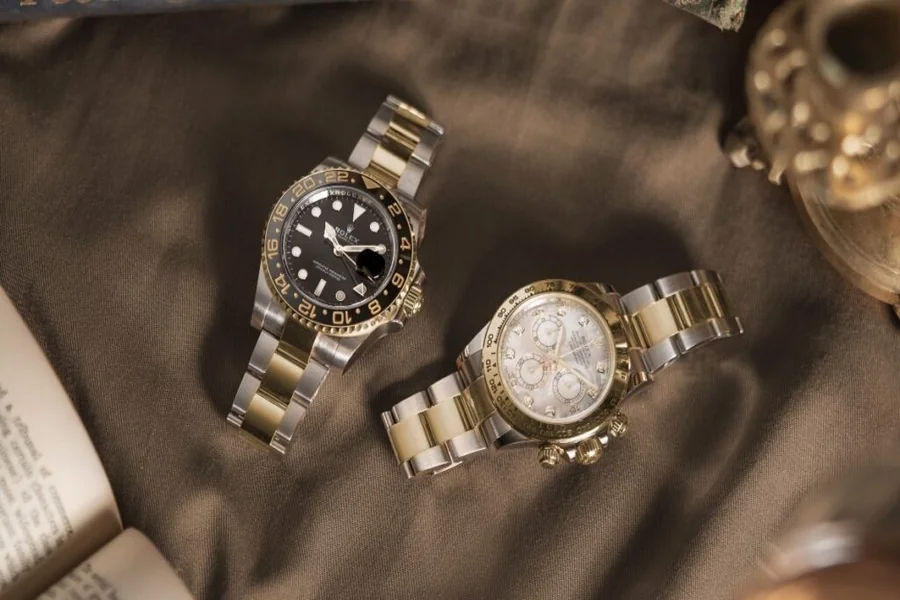A luxury watch is more than just a timekeeping device—it is a statement of style, a symbol of status, and an investment that can last a lifetime. Whether you are a seasoned collector or purchasing your first high-end watch, choosing the perfect luxury timepiece requires careful consideration. From understanding the types of watches to evaluating craftsmanship and brand reputation, each decision plays a role in finding a watch that complements your lifestyle and personal taste.
1. Define Your Purpose
Before diving into the world of luxury watches, it is essential to define the purpose of your purchase. Are you seeking a daily wear watch, a piece for special occasions, or an investment that appreciates over time? Daily wear watches should be durable, versatile, and comfortable, often featuring stainless steel or titanium cases and scratch-resistant sapphire crystals. On the other hand, a dress watch should be elegant, subtle, and refined, with a thinner profile and classic design elements that pair seamlessly with formal attire. Knowing your purpose ensures you select a watch that not only looks good but also fits your lifestyle.
2. Understand the Types of Watches
Luxury watches come in various styles, each with unique characteristics. The main categories include:
- Mechanical Watches: These watches are powered by intricate movements and require manual winding or automatic winding through wrist motion. Mechanical watches are prized for their craftsmanship, precision, and heritage.
- Quartz Watches: Powered by batteries, quartz watches are highly accurate and require minimal maintenance. They tend to be more affordable but may lack the prestige associated with mechanical movements.
- Chronographs: These watches feature stopwatch functionality, combining style with practical utility. Chronographs are popular among those who appreciate technical complexity.
- Dive Watches: Designed for underwater use, dive watches offer robust water resistance and a sporty aesthetic, often featuring luminous markers and rotating bezels.
Understanding these types helps narrow your choices based on functionality, style, and personal preference.
3. Consider the Brand
Brand reputation plays a significant role in luxury watch selection. Established brands like Rolex, Patek Philippe, Audemars Piguet, Omega, and Jaeger-LeCoultre are known for exceptional craftsmanship, innovation, and lasting value. While brand prestige can impact the price, it also ensures a level of quality, durability, and service that newer or lesser-known brands may not provide. Working with an impeccable luxury watch retailer ensures authenticity, expert guidance, and access to exclusive timepieces. Researching brand history, signature designs, and watchmaking expertise helps you make an informed decision.
4. Evaluate Craftsmanship and Materials
Luxury watches are defined by the quality of their materials and the artistry of their construction. Pay attention to the following elements:
- Case Material: Common materials include stainless steel, gold, titanium, and ceramic. Each has unique properties, such as durability, weight, and aesthetic appeal.
- Crystal: Sapphire crystal is preferred for its scratch resistance and clarity.
- Movement: The watch’s movement is the heart of the timepiece. Look for watches with high-quality movements that ensure precision and longevity. Swiss movements, for example, are globally recognized for their excellence.
- Finishing: Inspect the detailing on the dial, hands, and case. Luxury watches often feature meticulous finishing, from polished surfaces to intricate engravings.
A watch’s craftsmanship not only affects its appearance but also its durability and value retention over time.
5. Pay Attention to Size and Fit
A watch should complement your wrist size and body proportions. Oversized watches can look clunky on smaller wrists, while overly delicate watches may appear insignificant on larger wrists. Generally, case diameters between 36mm and 42mm suit most wrists, but personal preference plays a significant role. Additionally, consider the strap or bracelet material—leather offers elegance, while metal bracelets provide durability and a sporty look. Comfort is crucial, as even the most beautiful watch will lose its appeal if it feels cumbersome on your wrist.
6. Focus on Timeless Design
While trends can be tempting, a luxury watch is a long-term investment, so it is wise to prioritize timeless design over fleeting fashion. Classic designs, such as a clean dial, simple indices, and understated complications, tend to age gracefully and maintain resale value. A timeless watch not only complements a variety of outfits but also ensures you can enjoy it for decades without it feeling outdated.
7. Set a Realistic Budget
Luxury watches span a wide price range, from a few thousand to several hundred thousand dollars. Setting a budget helps narrow your options and prevents impulse purchases. Remember that cost reflects factors such as brand prestige, materials, complications, and rarity. While it’s tempting to stretch your budget for a statement piece, it’s more important to select a watch that aligns with your style, lifestyle, and long-term satisfaction.
8. Verify Authenticity and Warranty
When purchasing a luxury watch, always ensure authenticity by buying from authorized dealers or reputable resellers. Counterfeit watches are prevalent in the market, and verifying the origin protects your investment. Additionally, check the warranty and after-sales service, as luxury watches may require maintenance or repairs over time. A reputable brand with robust customer support ensures your watch remains in optimal condition for years to come.
Conclusion
Choosing the perfect luxury watch is a thoughtful process that balances aesthetics, functionality, craftsmanship, and personal style. By defining your purpose, understanding watch types, evaluating brands and materials, considering fit and design, and verifying authenticity, you can make an informed choice that brings lasting satisfaction. A luxury watch is more than an accessory—it is a legacy, an investment, and a reflection of your individuality. With careful consideration, you can find a timepiece that not only tells time but also tells your story.


